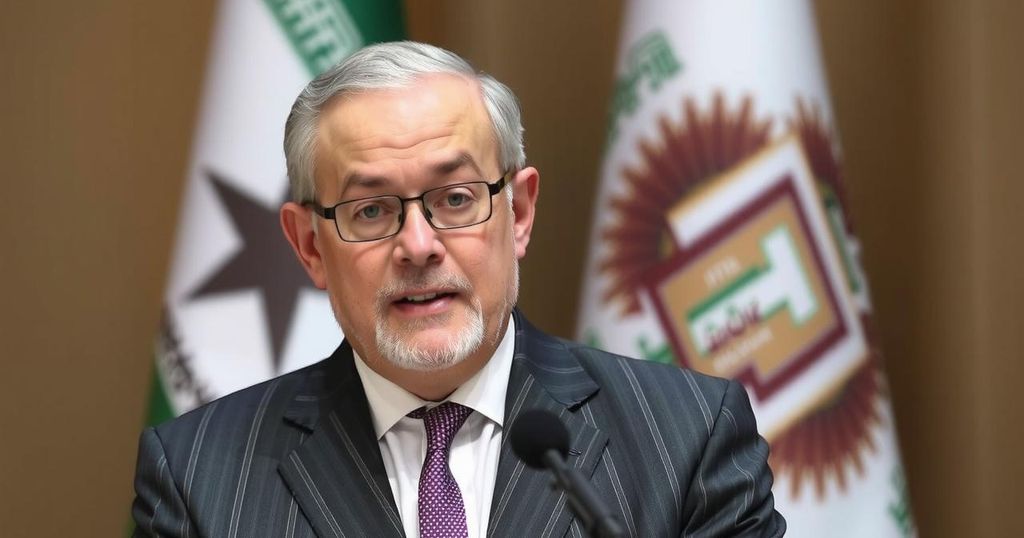Geopolitical Developments in Syria: Iran, Turkey, and Regional Relations

Syria’s Foreign Minister Al Shibani cautioned Iran against fostering chaos in the country, as reports show over 25,000 Syrians have returned home since regime changes. Protests erupted in Damascus following a Christmas tree burning, while allegations surfaced regarding forced false testimonies from medics on chemical attacks. Turkish President Erdogan reaffirmed Turkey’s commitment to Syria’s territorial integrity, and dialogues between the UAE and Syrian Foreign Ministers aimed to strengthen relations.
Syria is witnessing significant geopolitical developments, with Foreign Minister Al Shibani urging Iran against exacerbating instability in the region, warning that Iran should refrain from further chaos within Syria’s borders. Turkey has reported that over 25,000 Syrians have returned home since the fall of the regime, indicating a shift in the domestic landscape. Meanwhile, protests erupted in the capital, Damascus, following the burning of a Christmas tree, reflecting underlying tensions within society. Concerns have been raised regarding coercion instances among Syrian medics, who allege being pressured to provide false testimony about chemical attacks, calling for the protection of evidence of regime abuses. Turkish President Erdogan reiterated Turkey’s commitment to maintaining Syria’s territorial integrity, describing this stance as an unchanging principle. Additionally, discussions between the UAE and Syrian Foreign Ministers focused on enhancing bilateral relations, further highlighting the complexity of regional alliances.
The ongoing crisis in Syria has led to a multifaceted geopolitical situation that involves numerous actors, including Iran, Turkey, and the United Arab Emirates. Iran’s involvement in Syria has raised concerns regarding escalating chaos and destabilization within the region. The return of Syrian refugees since the regime change suggests a possible shift towards normalization, though protests highlight continued societal unrest. The claims of coerced testimonies among medical professionals point to severe human rights concerns amid the ongoing conflict, while Turkey’s geopolitical interests emphasize its focus on territorial integrity.
In conclusion, the current situation in Syria is marked by a delicate balance of competing interests from regional powers. The warning by Foreign Minister Al Shibani to Iran underlines the sensitivity of Iranian actions in Syria, while Turkey’s commitment to protecting Syrian sovereignty is unwavering. The recent return of refugees indicates a potential path towards normalization, yet challenges remain with ongoing protests and allegations of human rights violations. The dialogues among regional nations further accentuate the intricate dynamics that define current Syrian geopolitics.
Original Source: www.thenationalnews.com








